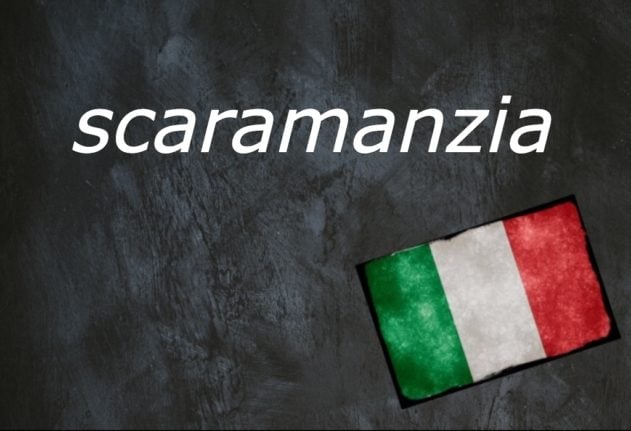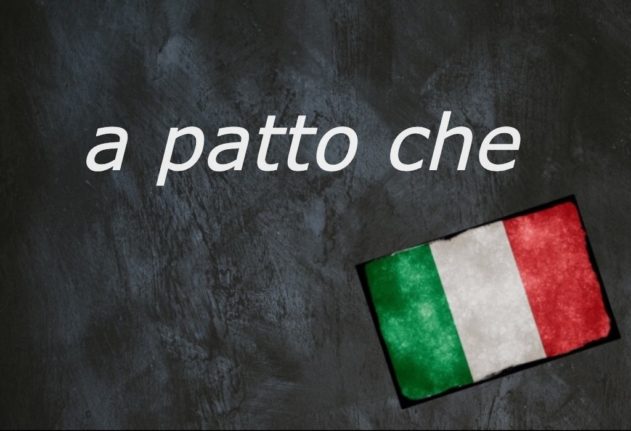The Corriere della Sera newspaper’s online dictionary defines scaramanzia as a spell or charm, and when spoken out loud the word itself (pronunciation available here) almost sounds like an incantation in its own right.
But the word also means superstition – and in day to day life, scaramanzia tends to have much more to do with this than to any actual spell-casting.
If you do something per scaramanzia it’s for luck or to ward off bad luck, while if you *don’t* do something per scaramanzia it’s because you don’t want to jinx yourself.
Incrocia le dita per scaramanzia.
Cross your fingers for good luck.
La diciassettesima sedia è stata rimossa per scaramanzia.
The seventeenth seat has been removed for good luck.
(In Italy, seventeen, rather than thirteen, is considered an unlucky number).
Non gli ho detto ancora niente per scaramanzia.
I haven’t told him anything yet because I don’t want to jinx it.
And where English speakers may ‘touch wood’ in order to avoid tempting fate, Italians would touch iron: toccare ferro.
This comes from toccare un ferro di cavallo – the more widely recognised auspicious practice of touching a horseshoe.
Another common gesture to ward off bad luck in Italian is fare la corna – sticking out your index and little finger in imitation of a pair of bull’s horns.
The idea is that the gesture will fight off the evil eye, or malocchio, with the strength of a bull. In the south it’s performed with your fingers pointing towards the ground, as making it the other way around implies the person you’re gesturing towards is being cheated on.
Holding the highest office in the land doesn’t prevent you from being susceptible to scaramanzia. In the 70s, Italian president Giovanni Leone was repeatedly photographed making the sign behind his back, including during a visit to patients suffering from a cholera outbreak in Naples.
As well as being an abstract concept, a scaramanzia can also be a physical object, namely a good luck charm.
As with the hand gesture, the corna, or horn, remains a favoured symbol for good luck, and in Naples in particular it often takes the shape of a twisted object resembling a red chilli pepper, known as a cornicello (‘little horn’).
If you’re wandering the streets of downtown Naples as a tourist, you’ll have plenty of opportunity to buy one in the form of a keychain, Christmas ornament or dashboard decoration.
Touch wood – or iron – you won’t need it.
Is there an Italian word of expression you’d like us to feature? If so, please email us with your suggestion.
Don’t miss any of our Italian words and expressions of the day by downloading our new app (available on Apple and Android) and then selecting the Italian Word of the Day in your Notification options via the User button.



 Please whitelist us to continue reading.
Please whitelist us to continue reading.
Member comments